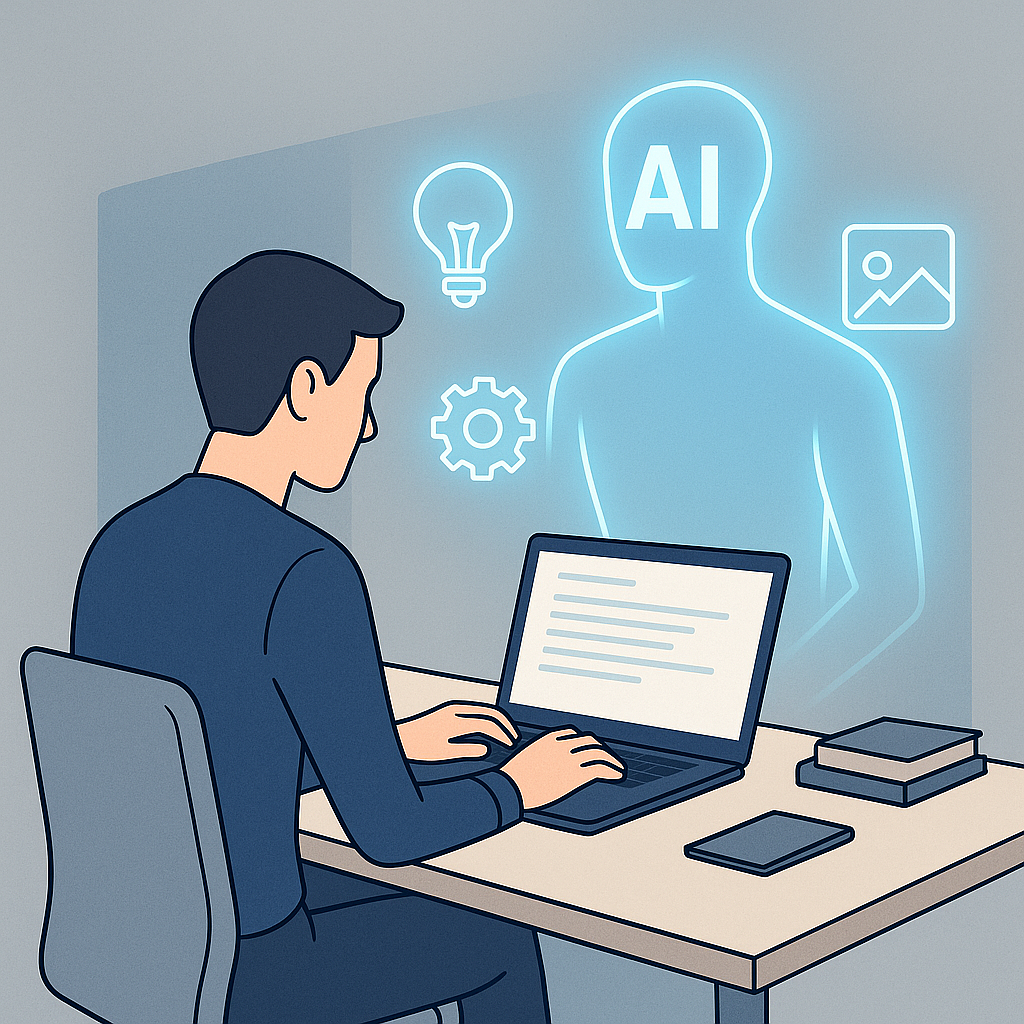Ed Zitron Might Be Right, But I’m Still Using AI Every Day

Lately, I’ve been listening to Ed Zitron and his podcast Better Offline. He’s not shy about his views: he believes that most AI companies are burning through cash and are likely to fail because they don’t have viable products. I respect his perspective. He clearly understands the tech industry and sees AI as mostly a kind of “magic trick”—a system that assembles words in ways that appear intelligent, but in reality don’t demonstrate real understanding. That’s my paraphrase, not his.
As for me, I don’t claim to fully understand the business models of these companies or whether they’re financially sustainable in the long term. But to be honest, I’m not especially concerned. I’m not investing in them. The only money I’ve put into this space is my $20 per month subscription to ChatGPT from OpenAI, and for that amount, I get value in return.
For me, AI is a tool. I use it to proofread my blog posts, do light research, generate feature images, and even help with simple programming projects on my Raspberry Pi. I also use it to learn new IT skills. It works well for these tasks, and I understand its limitations. I still fact-check its outputs where it matters, but I don’t expect perfection—just usefulness.
Zitron often focuses on the financials: burn rate, lack of revenue, poor leadership. I understand that perspective. But as a consumer, I’m less concerned with whether these companies are profitable and more focused on whether the tools are useful to me. For $20 a month, I now have access to editing support, basic IT guidance, image generation, and other tasks that would have previously required hiring multiple professionals—something most average people could never afford in the first place. In that sense, AI hasn’t replaced services the public was actually using; it has made previously inaccessible services newly available. That’s a net gain for consumers, not a loss.
I expect the industry will consolidate over time. Some companies will fold, others will adjust their pricing models. But the technology is out in the world now. You can’t put the genie back in the bottle. If AI tools eventually become unaffordable for average users, that would be a real loss. The core promise of AI—at least for consumers—is the democratization of services and skills that used to be out of reach for most people.
That’s the product. Whether it’s profitable yet is someone else’s problem to solve. I use AI tools in a way that works for me, and I feel I’m getting my money’s worth.
That said, I do agree with Ed Zitron on another key point: many tech CEOs don’t seem to understand the very technology they’re hyping. They make contradictory statements, avoid hard questions, and often speak in buzzword-laden jargon. Meanwhile, the press rarely holds them accountable or asks for clear, honest explanations—just as we’ve seen in politics. That’s a broader trend worth worrying about.
More broadly, I think we’re drifting into a corporate-oligarchy model of governance. We’re not there yet, but we’re heading in that direction. The old saying holds true: the rich are getting richer, the poor are getting poorer, and the middle class is shrinking. It's happening faster than most people realize.
Finally, I wonder if anyone’s asking what happens to the engineers building these AI systems. At what point do they realize they’re creating technology that may replace many of their own jobs? And what if, in response, some begin to embed subtle flaws or weaknesses—intentional sabotage that’s difficult to detect? It reminds me of Rogue One, where Galen Erso secretly builds a fatal flaw into the Death Star. That Star Wars reference might sound dramatic, but the point stands: humans build these systems, and humans have motives, fears, and limits.
#AItools #TechPerspective #ConsumerVoices #BetterOffline